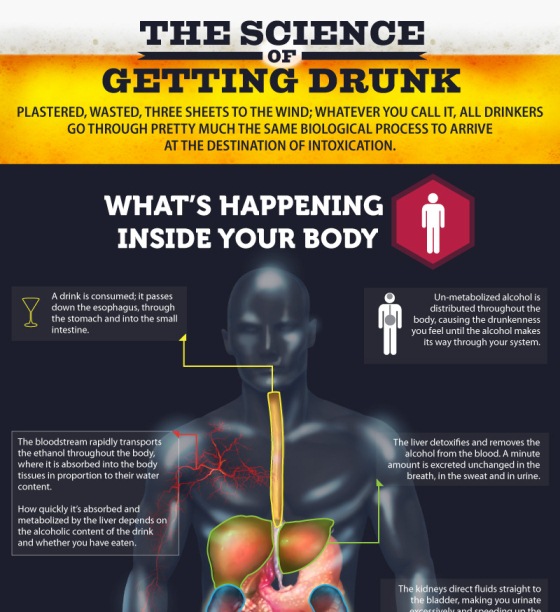Unlock the mystery behind intoxication levels with the ultimate guide on how many beers it takes to get buzzed.

Image courtesy of Anete Lusina via Pexels
Table of Contents
In social settings, the question of how many beers it takes to get drunk is commonplace. The answer, however, is not as straightforward as you might think. Delving into the science behind alcohol metabolism and intoxication levels can help shed light on this age-old query. Let’s break down the factors that come into play when assessing one’s alcohol tolerance and the number of beverages it might take to reach intoxication.
Understanding Alcohol Metabolism
When you consume a beer, the alcohol within it enters your bloodstream through the digestive system. The liver, responsible for metabolizing alcohol, breaks down ethanol into acetaldehyde through enzymes such as alcohol dehydrogenase (ADH) and aldehyde dehydrogenase (ALDH). This metabolic process determines how quickly your body can process and eliminate alcohol.
Individuals with a higher level of these enzymes may metabolize alcohol more efficiently, resulting in a lower blood alcohol concentration (BAC) and a slower onset of intoxication. However, factors like age, gender, body weight, and genetic predisposition can also play a significant role in how your body processes alcohol.
Individual Tolerance Levels
Alcohol tolerance varies from person to person and can be influenced by several factors. Regular alcohol consumption can lead to the development of tolerance over time, requiring individuals to consume more alcohol to feel the effects. However, tolerance does not imply immunity to the negative consequences of intoxication.
It’s essential to recognize your own limits and be mindful of how alcohol affects your body. Signs of reaching your limit include impaired coordination, slurred speech, and changes in behavior. Knowing these indicators and understanding your body’s response to alcohol can help you make informed decisions about your drinking habits.
Factors Influencing Intoxication
External factors such as food consumption, hydration levels, and mixing alcohol with other substances can impact how quickly you feel the effects of alcohol. Consuming alcohol on an empty stomach, for example, can lead to faster intoxication due to the lack of food to slow the absorption of alcohol into the bloodstream.

Image courtesy of www.infographicszone.com via Google Images
Additionally, the alcohol content of beverages plays a significant role in determining how many drinks it takes to reach intoxication. Higher ABV (alcohol by volume) beverages will raise your BAC more rapidly than lower alcohol content drinks, such as beer. Being aware of the potency of different beverages can help you make informed decisions about your alcohol consumption.
Conclusion
Understanding the science behind alcohol metabolism, individual tolerance levels, and the factors influencing intoxication can provide valuable insights into the impact of alcohol on the body. While the question of how many beers it takes to get drunk may have a complex answer, being aware of your limits and practicing responsible drinking habits are key to staying safe and enjoying alcohol in moderation.
Whether you’re having a casual drink with friends or attending a social gathering, maintaining an awareness of your alcohol intake and how it affects your body is crucial. By prioritizing your well-being and making informed choices about alcohol consumption, you can enjoy the social aspects of drinking while staying safe and avoiding the risks associated with excessive intoxication.
FAQs
How does food consumption affect alcohol intoxication?
Eating food before or while drinking can slow the absorption of alcohol into the bloodstream, potentially delaying the onset of intoxication.
Can drinking water help prevent intoxication?
Staying hydrated by drinking water between alcoholic beverages can help reduce the effects of alcohol and prevent dehydration, but it will not prevent intoxication entirely.
Does body weight impact how quickly someone gets drunk?
Body weight can influence alcohol metabolism, as a larger body mass may require more alcohol to reach intoxication compared to a smaller body.
Is there a universal number of beers that will make everyone intoxicated?
No, individual factors such as metabolism, tolerance levels, and genetic predispositions make it impossible to determine a specific number of beers that will intoxicate everyone equally.
Generated by Texta.ai Blog Automation
Leave a Reply